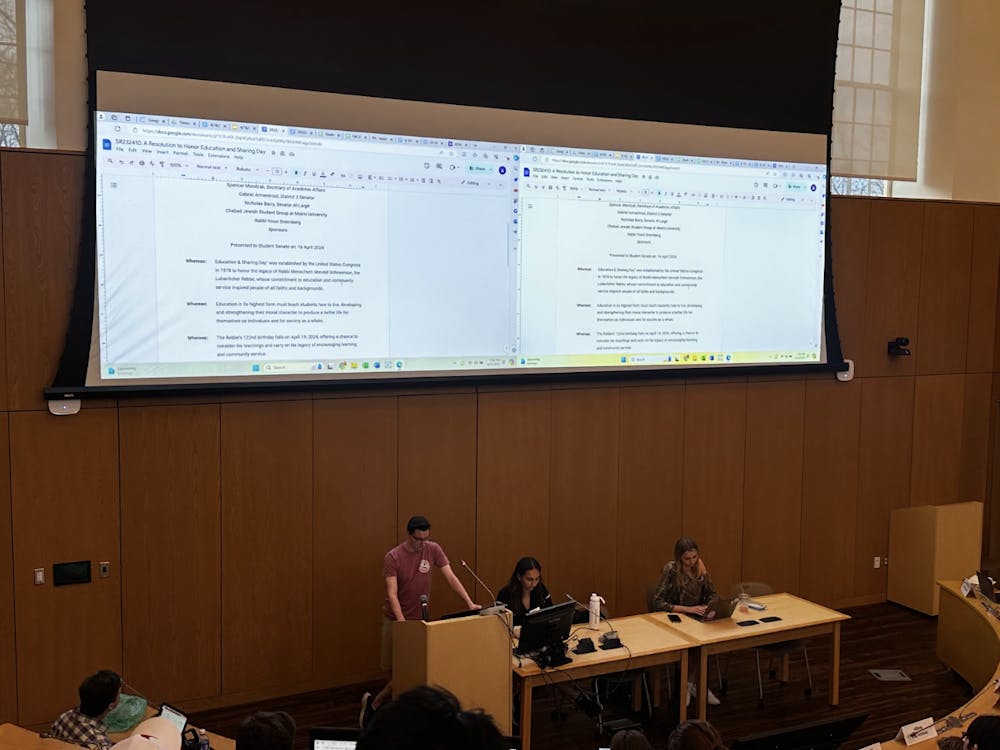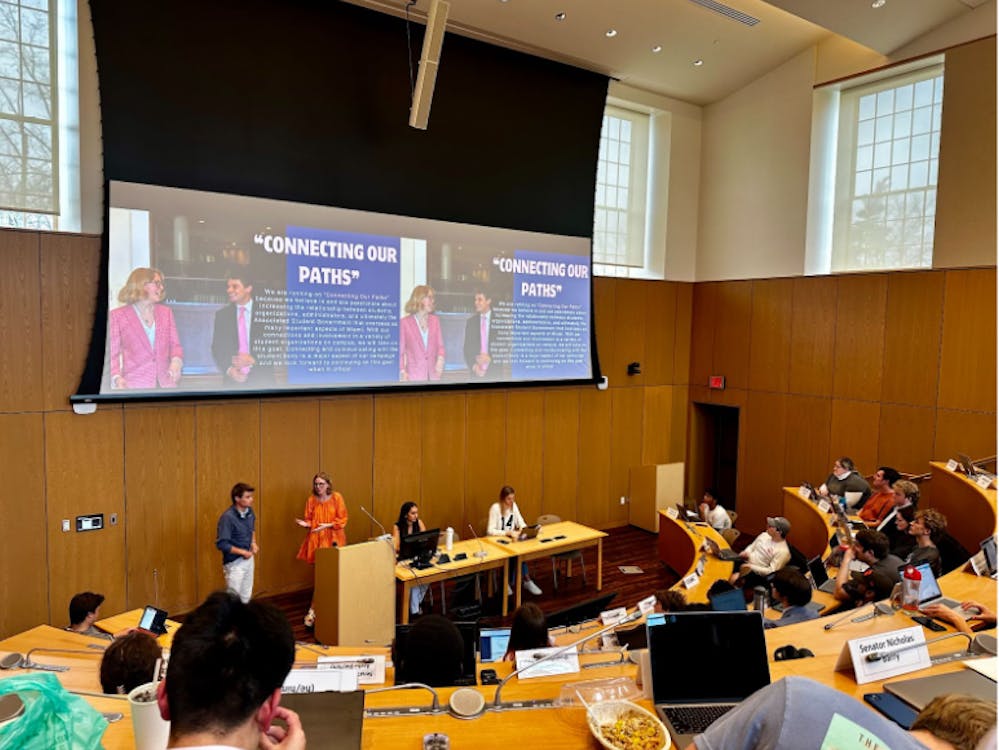The following piece, written by the editorial editors, reflects the majority opinion of the editorial board.
If this polarizing political season has taught Americans anything, it's that we are a country made up of citizens who identify with a wide gamut of ideologies. Indeed, as advertised, America is a melting pot and that which makes us different should, ideally, bring us together. To identify as a Republican or a Democrat these days doesn't cut it. These days, you have to account for the Green Party and the Tea Party, the Libertarians, Independents, Socialists, etc. To identify as a conservative or liberal is too broad.
Taken as a microcosm of our country, students at Miami cannot be categorized in a way that is inherently polarizing. It seemed that Associated Student Government (ASG) President Maggie Reilly agreed with this sentiment in her State of the School address on Oct. 5, saying, "Too often our university is divided into what seems to be three types of communities -- the Greek community, diverse and international students and athletes."
She's absolutely right. Whoever thought it was a good idea to divvy up our student body into three rather skewed categories was thinking in a limited mindset. It makes for a myopic division that does not account for the large majority of students. Taken at face value, the three aforementioned designations make for a strange looking pie chart not evenly divided by any means. Except: Reilly went on to use these categories to define both the student body and ASG's plans to integrate the students, ostensibly sidestepping the bigger problem of limiting our student body to three categories.
The two groups that Reilly claims need to interact with one another more -- the Greek community and athletes -- account for a grand total of 30 percent of all students, according to the Cliff Alexander Office and Miami "Did You Know?" facts. 27 percent of students are involved in Greek Life, while a mere three percent make up Miami's student-athlete population.
Reilly outlined a plan to bridge these apparently isolated populations, citing the idea of recruiting football players to ref the flag football games hosted by her sorority. This is the kind of integration Miami needs, according to our student body president. This is a step in the right direction.
The other branch mentioned, the third (and seemingly less important) group is "diverse" students, who are supposed to account for the remaining 70 percent of Miami's student population. There are a few outstanding problems with this statistic. First, it implies that the former groups do not consist of students from diverse backgrounds, that no crossover is possible. Surely this is not intentional (nor is it accurate), but that does not excuse the negligence involved when one tries to minimize 16,000 plus students into three groups.
The second issue is lumping a whopping 11,000 of those students into a category as vague as "diverse and international," which makes you wonder, "what makes a student diverse?" That's like calling someone who voted in the last election democratic -- as in a supporter of democracy -- simply for voting. In our own ways, we are all diverse.
If the category was intended to encompass the minorities on campus, the intention was wide of its mark. Assuming this to be the case, it makes one wonder how much a representative group like ASG really cares about the minorities of campus.
All that was mentioned in President Reilly's speech pertaining to "diverse" (minority) students was the implementation of Diversity Peer Educators (DPE), which is "devoted to promote greater cultural understanding and awareness on campus and in the local community."
This, of course, comes after the statement that ASG would be focusing solely on uniting Greek life and athletes. This last bit spoke to the bigger idea of Reilly's speech, which indicated ASG's desire to unite Miami's three communities, to bring about one Miami community through integration. It's a nice idea, but ill-informed.
The whole point of higher education is to promote learning through integration and intellectual challenge. Liberal education, at its most basic, asks its students to take a look at multiple perspectives through multiple subjects as a part of the curriculum. It inherently rejects grouping.
Enjoy what you're reading?
Signup for our newsletter
While Reilly's goals and ideas are well-intentioned, they perpetuate everything that higher education strays from. Miami cannot be defined by three groups. Not only does ASG need to widen its focus, but it also needs to support the bridging of groups beyond student athletes and the
Greek community.




